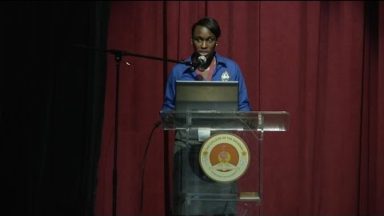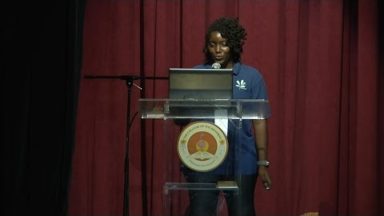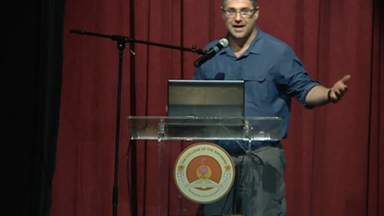Prioritising the E-Word: Developing Bahamian Specific Sustainable Development Plans
Presented by Nikita Shiel-Rolle
Nikita Shiel-Rolle
The Bahamas must take an immediate and proactive approach to combat the imminent threat of climate change and the loss of biodiversity. As the country works towards achieving the 2030 Sustainable Development goals, a systematic and strategic approach must be implemented to ensure the country’s success. If Sustainable Development goals number thirteen (To take urgent action to combat climate change and its impact.) and fourteen (To conserve and suitably use the ocean, seas and marine resources.) are not achieved, the socioeconomic well being of Bahamians will be severely impacted. The best available science will be required to achieve these sustainable development goals, however, science alone will not enable us to reach our target. The implementation, management and compliance necessary to meet the development goals, particularly in an archipelagic nation like The Bahamas will depend on citizen engagement and self-regulation. Cultivating the behavioral changes required to combat climate change and prevent the loss of biodiversity requires engaged and scientifically literate citizens. A central challenge to cultivating active citizenship and sustainable behavior in The Bahamas is resolving the poor educational outcomes for youth leaving the public school system. In order for The Bahamas to meet the 2030 sustainable development goals, all practitioners developing action plans must make general education, environmental education, science literacy, and citizenship central components in their conservation plan. As a country that depends directly on our natural resources to support our economy and well being, education cannot continue to be an after thought in conservation planning. The Young Marine Explorers three-year Conservation Program will be presented as a solution that can be integrated into island specific sustainable development plans. The Conservation program trains youth to address the imminent socioeconomic and environmental implications that climate change and other environmental threats pose to The Bahamas. The program accomplishes this by engaging youth in leadership development and in-depth environmental education. It features a three-year curriculum designed for secondary school students centered on three themes (1) Ocean, (2) Biodiversity and (3) Sustainability. Each theme year has specific learning outcomes achieved through twenty-six after- school and Saturday field activities. YME’s curriculum has been designed to correspond with the Bahamians public education learning objectives; matching content to academic expectation to create a coherent curriculum.







Recent Comments